CENTENNIAL, Colo. – February 8, 2024 – NioCorp Developments Ltd. (“NioCorp” or the “Company“) (NASDAQ:NB) (TSX:NB) joined with major automotive manufacturers, mining companies, and electric vehicle battery companies to urge the Biden Administration to allow a 10% tax credit to apply to both mineral extraction and mineral processing in the U.S.
In a joint letter this week to U.S. Treasury Secretary Janet Yellen, NioCorp and 45 other companies and associations, including Tesla, General Motors, and the Zero Emission Transportation Association, urged the Internal Revenue Service not to limit the Section 45X Advanced Manufacturing Product Tax Credit (the “45X Tax Credit”) only to the cost of processing critical minerals needed for electric vehicles and other clean energy technologies, but to extend the 45X Tax Credit to the cost of mining the minerals, as well. The 45X Tax Credit was enacted with support from both political parties as part of the Inflation Reduction Act of 2022.
In the letter, NioCorp and other signatories explained their concerns as follows:
“Section 45X creates a new tax credit that provides $35 per kWh for each battery cell, $10 per kWh for each battery module, and covers 10 percent of the costs of production of the applicable critical materials, which will significantly drive down the costs of domestic clean energy manufacturing. Unlike other eligible components, applicable critical minerals are not subject to a credit phaseout after 2029, underscoring Congressional intent that the IRA incentivizes the onshoring of the critical minerals supply chain.
“If implemented thoughtfully, the 45X credit will ensure the success of current American industrial policy over the next decade by facilitating the deployment of domestically-produced clean energy technologies —particularly electric vehicles. However, the proposed guidance states that the only critical mineral production costs eligible to be counted toward the production tax credit are the downstream value-added activities that include chemical conversion and purification (i.e., processing). This concept would not provide a tax credit for the costs of domestic extraction of critical minerals, a key part of onshoring the supply chain.
…
“Congress intended the 45X tax credit to work in tandem with the clean vehicle credit’s sourcing requirements to stimulate domestic production of critical minerals and reduce the United States’ reliance on imported minerals,” the coalition wrote. “To stimulate greater security of our domestic critical mineral supply chains and unlock the intended impact of the statute, the undersigned organizations urge the Department of the Treasury and the IRS to consider that direct and indirect material costs and costs related to the domestic extraction of raw materials are value-added activities and should be eligible to claim the 45X credit.”
The full text of the letter can be seen here.
Following the letter’s transmittal, NioCorp’s Executive Chairman and CEO Mark A. Smith said the following: “If we want to reduce America’s dangerous over-reliance on foreign nations for the critical minerals that enable our clean energy future and bolster our national defense, we need to promote both the mining and downstream processing of critical minerals here in America. That is how we re-establish fully integrated domestic supply chains and create a new generation of high-skill jobs. Without mining here at home to feed American value-added processing, these domestic supply chains can evaporate very quickly by the whims of foreign governments that want to undercut America’s global leadership and weaken our national defenses.”
In addition to NioCorp, the companies and industry trade associations signing the letter included the following: Alaska Miners Association, American Critical Minerals Association, American Exploration & Mining Association, American Lithium Corp., American Rare Earths Ltd., Arizona Mining Association, Battery Materials & Technology Coalition (BMTC), Coeur Mining, Colorado Mining Association, First Mode, General Motors, GraphiteOne, Hecla Mining, Idaho Mining Association, Ioneer USA, Jervois, Liebherr, Lithium Americas, Lundin Mining – Eagle Mine, Materion Natural Resources, Metallic Minerals Corporation, Mining Minnesota, Montana Mining Association, MP Materials, National Mining Association (NMA), Nevada Battery Coalition, Nevada Mining Association, NewRange Copper Nickel, Nyrstar, Perpetua Resources, Piedmont Lithium, Ramaco Resources, Rio Tinto, Sibanye Stillwater, Society for Mining, Metallurgy, and Exploration, South32, Talon Metals, Teck Resources, TerraVolta, Tesla, The Women’s Mining Coalition, U.S. Battery Machine Builders Coalition, USA Rare Earth, LLC., Utah Mining Association, and the Zero Emission Transportation Association (ZETA).
To learn more about NioCorp’s Elk Creek Critical Minerals Project (the “Project”), please go here: https://www.niocorp.com
# # #
FOR MORE INFORMATION:
Jim Sims, Corporate Communications Officer, NioCorp Developments Ltd., (720) 334-7066, [email protected]
@NioCorp $NB $NB.TO $BR3 #Niobium #Scandium #rareearth #neodymium #dysprosium #terbium #ElkCreek #EV #electricvehicle
ABOUT NIOCORP
NioCorp is developing a critical minerals project in Southeast Nebraska that will produce niobium, scandium, and titanium. The Company also is evaluating the potential to produce several rare earths from the Project. Niobium is used to produce specialty alloys as well as High Strength, Low Alloy (“HSLA“) steel, which is a lighter, stronger steel used in automotive, structural, and pipeline applications. Scandium is a specialty metal that can be combined with Aluminum to make alloys with increased strength and improved corrosion resistance. Scandium is also a critical component of advanced solid oxide fuel cells. Titanium is used in various lightweight alloys and is a key component of pigments used in paper, paint and plastics and is also used for aerospace applications, armor, and medical implants. Magnetic rare earths, such as neodymium, praseodymium, terbium, and dysprosium, are critical to the making of Neodymium-Iron-Boron (“NdFeB”) magnets, which are used across a wide variety of defense and civilian applications.
FORWARD-LOOKING STATEMENTS
This press release contains forward-looking statements within the meaning of the United States Private Securities Litigation Reform Act of 1995 and forward-looking information within the meaning of applicable Canadian securities laws. Forward-looking statements may include, but are not limited to, statements about and expectations of policy actions by the Biden Administration and the Department of Treasury, the indirect and direct benefits of extending the 45X Tax Credit to costs related to the domestic extraction of raw materials, NioCorp’s expectation and ability to mine ore from the Project, NioCorp’s plans to produce, and the anticipated production levels of, niobium, scandium, titanium and aluminum-scandium alloy, and NioCorp’s potential to produce several rare earths from the Project. Forward-looking statements are typically identified by words such as “plan,” “believe,” “expect,” “anticipate,” “intend,” “outlook,” “estimate,” “forecast,” “project,” “continue,” “could,” “may,” “might,” “possible,” “potential,” “predict,” “should,” “would” and other similar words and expressions, but the absence of these words does not mean that a statement is not forward-looking.
The forward-looking statements are based on the current expectations of the management of NioCorp and are inherently subject to uncertainties and changes in circumstances and their potential effects and speak only as of the date of such statement. There can be no assurance that future developments will be those that have been anticipated. Forward-looking statements reflect material expectations and assumptions, including, without limitation, expectations, and assumptions relating to: NioCorp’s ability to receive sufficient project financing. Such expectations and assumptions are inherently subject to uncertainties and contingencies regarding future events and, as such, are subject to change. Forward-looking statements involve a number of risks, uncertainties or other factors that may cause actual results or performance to be materially different from those expressed or implied by these forward-looking statements. These risks and uncertainties include, but are not limited to, those discussed and identified in public filings made by NioCorp with the U.S. Securities and Exchange Commission and with the applicable Canadian securities regulatory authorities and the following: NioCorp’s ability to recognize the anticipated benefits of the business combination with GX Acquisition Corp. II (the “Business Combination”) and the standby equity purchase agreement (the “Yorkville Equity Facility Financing Agreement” and, together with the Business Combination, the “Transactions”) with YA II PN, Ltd., an investment fund managed by Yorkville Advisors Global, LP, including NioCorp’s ability to access the full amount of the expected net proceeds under the Yorkville Equity Facility Financing Agreement over the next three years; unexpected costs related to the Transactions; the outcome of any legal proceedings that may be instituted against NioCorp following closing of the Transactions; NioCorp’s ability to receive a final commitment of financing from the Export-Import Bank of the United States on the anticipated timeline, on acceptable terms, or at all; NioCorp’s ability to continue to meet the listing standards of The Nasdaq Stock Market LLC; NioCorp’s ability to operate as a going concern; risks relating to NioCorp’s common shares, including price volatility, lack of dividend payments and dilution or the perception of the likelihood any of the foregoing; NioCorp’s requirement of significant additional capital; the extent to which NioCorp’s level of indebtedness and/or the terms contained in agreements governing NioCorp’s indebtedness or the Yorkville Equity Facility Financing Agreement may impair NioCorp’s ability to obtain additional financing; covenants contained in agreements with NioCorp’s secured creditors that may affect its assets; NioCorp’s limited operating history; NioCorp’s history of losses; the material weaknesses in NioCorp’s internal control over financial reporting, NioCorp’s efforts to remediate such material weaknesses and the timing of remediation; the possibility that NioCorp may qualify as a passive foreign investment company under the U.S. Internal Revenue Code of 1986, as amended (the “Code”); the potential that the Transactions could result in NioCorp becoming subject to materially adverse U.S. federal income tax consequences as a result of the application of Section 7874 and related sections of the Code; cost increases for NioCorp’s exploration and, if warranted, development projects; a disruption in, or failure of, NioCorp’s information technology systems, including those related to cybersecurity; equipment and supply shortages; current and future off take agreements, joint ventures, and partnerships; NioCorp’s ability to attract qualified management; the effects of the COVID-19 pandemic or other global health crises on NioCorp’s business plans, financial condition and liquidity; estimates of mineral resources and reserves; mineral exploration and production activities; feasibility study results; the results of metallurgical testing; changes in demand for and price of commodities (such as fuel and electricity) and currencies; competition in the mining industry; changes or disruptions in the securities markets; legislative, political or economic developments, including changes in federal and/or state laws that may significantly affect the mining industry; the impacts of climate change, as well as actions taken or required by governments related to strengthening resilience in the face of potential impacts from climate change; the need to obtain permits and comply with laws and regulations and other regulatory requirements; the timing and reliability of sampling and assay data; the possibility that actual results of work may differ from projections/expectations or may not realize the perceived potential of NioCorp’s projects; risks of accidents, equipment breakdowns, and labor disputes or other unanticipated difficulties or interruptions; the possibility of cost overruns or unanticipated expenses in development programs; operating or technical difficulties in connection with exploration, mining, or development activities; management of the water balance at the Project site; land reclamation requirements related to the Project; the speculative nature of mineral exploration and development, including the risks of diminishing quantities of grades of reserves and resources; claims on the title to NioCorp’s properties; potential future litigation; and NioCorp’s lack of insurance covering all of NioCorp’s operations.
Should one or more of these risks or uncertainties materialize or should any of the assumptions made by the management of NioCorp prove incorrect, actual results may vary in material respects from those projected in these forward-looking statements.
All subsequent written and oral forward-looking statements concerning the matters addressed herein and attributable to NioCorp or any person acting on its behalf are expressly qualified in their entirety by the cautionary statements contained or referred to herein. Except to the extent required by applicable law or regulation, NioCorp undertakes no obligation to update these forward-looking statements to reflect events or circumstances after the date hereof to reflect the occurrence of unanticipated events.

